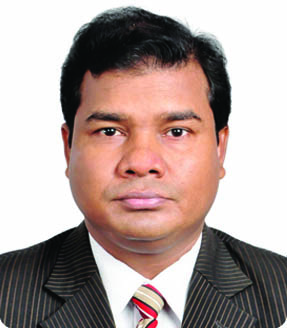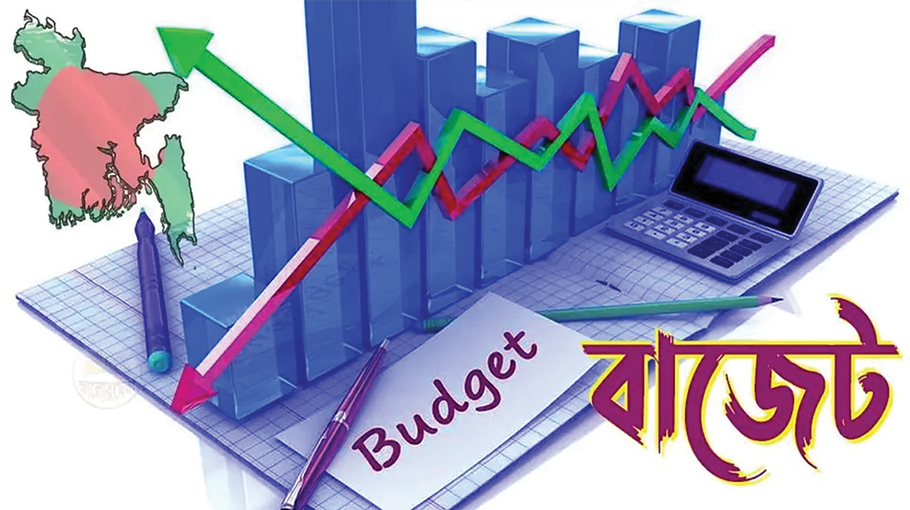Budget to focus on macroeconomic stability, taming inflation

The government is set to place the national budget for the fiscal year 2024-25 in the parliament on June 6, highlighting major challenges such as high inflation, economic crisis and dwindling macroeconomic conditions.
Finance Minister Abul Hassan Mahmood Ali is expected to propose an ambitious budget of about Tk 8 lakh crore which is going to be the 54th budget of Bangladesh. It will be the first-ever budget to be announced by Mr. Mahmood Ali.
Economists, however, opine that the upcoming budget should focus on raising revenue earnings in an effort to stabilise the country’s economy.
In the proposed budget, the tax-free income limit for individuals is a vital issue. Despite rising inflation, the tax-free income limit for individuals will not be increased in the next budget. Last year, the tax-free threshold was raised from Tk 3 lakh to Tk 3.5 lakh.
But NBR plans to impose additional taxes on wealthy men aiming to boost revenue collection. The tax rate for individual taxpayers is set to rise from 25 percent to 30 percent for annual incomes exceeding Tk 16 lakh.
There are also plans to reduce tax exemptions on various sectors and withdraw tax exemptions on capital income from stock market investments.
The proposed budget for FY 2024-25 sets a revenue collection target of Tk 4.80 lakh crore. The current budget set this target at Tk 4.30 lakh crore and later it was revised down to Tk 4.10 lakh crore.
Experts have expressed mixed reactions over how the budget will impact the people's life while the government has made efforts to face the challenges of implementing the budget.
Eminent economist and former governor of Bangladesh Bank Dr. Atiur Rahman believes that mobilisation of internal resources should be the main target in the upcoming national budget. Experts said that this year's budget is going to be unveiled amid high inflation, dollar crisis, burden of foreign debt, financial sector’s mismanagement and excessive hike in project costs.
The International Monetary Fund (IMF) as per of its condition to approve $470 crore loan, has advised the government to increase revenue earnings and carry out reforms of revenue structure.
Over the past few years, the government’s efforts to carry out substantial tax reforms have been insufficient, resulting in a constrained ability to generate tax revenue.
Meanwhile, country's leading economic think tank, Centre for Policy Dialogue (CPD) thinks that the FY25 budget will need to address the challenges with a view to restoring macroeconomic stability.
CPD made three proposals for the national budget for FY25 like restoring macroeconomic stability, protecting the interests of vulnerable and disadvantaged groups, enhancing fiscal space, and ensuring best use of public resources through appropriate prioritization and by ensuring good value for money.
Dr. Sadiq Ahmed, Vice Chairman, Policy Research Institute (PRI), mentions four major macroeconomic concerns of Bangladesh like import surge leading to drop in reserves, depreciation of Taka against US dollar, persistent inflation, and low domestic revenue growth because of external shocks.
He opined that there should have specific measures in the budget to tackle inflationary pressure, balance of payments, and budgetary challenges facing the country now.
President of the Federation of Bangladesh Chambers of Commerce and Industry (FBCCI) Mahbubul Alam told Bangladesh Post that FBCCI expects specific guidelines in the next budget for FY25, considering the current economic challenges alongside firm steps in the macroeconomic management to sustain the economic growth.
He made the observations at a view-exchange meeting held at the board room of the apex body.
FBCCI has submitted a set of proposals and recommendations related to import duty, income tax, VAT and other taxes to take them into consideration in the upcoming proposed budget.
Various chambers and associations have also made their specific proposals and recommendations through FBCCI.
Mahbubul mentioned that the budget taskforce of NBR on income tax, import duty and customs has discussed the basic proposals of FBCCI on income tax, import duty and customs.
"It has become imperative to ensure the country's business-friendly environment to face the long-term impact of post- Covid-19 situation, Russia-Ukraine war situation and the Middle East crisis and the challenges of LDC graduation," he added.
Experts opine that the average annual growth in tax revenue over the past six fiscal years was only 10 percent.
Inflationary pressure has been a persistent issue since the Ukraine-Russia war which started in February 2022, with a spike of 9.5 percent in August 2022, and hitting a record high of 9.94 percent in May 2023.




